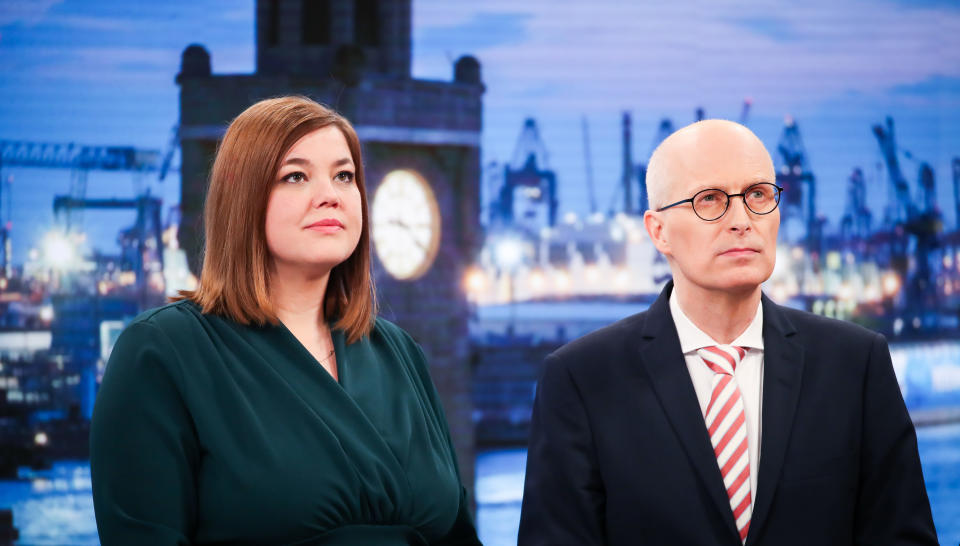Hamburg voters reject Merkel's conservatives and far-right AfD

Citizens of the city-state of Hamburg went to the polls on Sunday to deliver a victory for Germany’s struggling Social Democrats, who scooped 39% of the vote. The Greens surged to second place with just over 24%.
The election in the northern city marked another disaster for chancellor Angela Merkel’s Christian Democratic Union (CDU), which scraped just over 11% — its worst-ever result in Hamburg.
The party has been badly bruised this year, with its leader resigning in the wake of a political scandal in which the regional CDU in Thuringia broke the party rule and teamed up with the far-fight Alternative for Germany (AfD) to elect a state premier.
The AfD fared even worse in Hamburg on Sunday. The party, which is present in all 16 states parliaments and the biggest opposition party in the national government, barely scraped over the 5% needed to re-enter parliament.
Hamburg may be small, with about 1.3 million voters, but the state with the famous port city has one of the highest GDPs in the country. Since it is the only state election in Germany this year, Sunday’s results were closely watched for implications for the national government in Berlin.
“The Greens look set to challenge the CDU’s number 1 spot at the national level, benefiting from strong support in at least urban areas in the west,” ING Germany’s chief economist Carsten Brzeski said in a note.
The Christian Democrats were plunged into chaos after chairwoman Annegret Kramp-Karrenbauer suddenly quit earlier this month. The party will meet in Berlin today to discuss finding a new leader, and a new candidate for the chancellor’s role before the end of this year.
“With the CDU struggling to enter a smooth transition into the post-Merkel era, a political landscape in which the centre now has three parties (CDU, SPD and Greens)... German politics is likely to become more inward-looking than it already is until the next national elections,” Brzeski wrote. He noted that “this does not bode well for new significant steps towards more Eurozone integration and additional fiscal stimulus.”
READ MORE: What’s next for Germany now Merkel's succession plan has shattered?
The AfD has lost support last week after a 43-year-old German man shot and killed nine people, including five Turkish nationals, in two hookah bars in the town of Hanau, near Frankfurt, before returning home and killing his mother and himself.
READ MORE: Gunman who killed nine in Germany allegedly held far-right views
A majority of Germans (60%) surveyed the day after the attack by the Kantar Institute considered the AfD to be partly responsible for right-wing extremist violence because of its racist, hate-filled rhetoric.
The murderer, identified as Tobias Rathjen, had posted a xenophobic video message online not long before he carried out his attacks.
Interior minister Horst Seehofer told the press on Friday that the threats from rightwing extremism, racism and antisemitism were “very high” in Germany.
"Racism is poison. Hate is poison,” said Merkel last week. “And this poison occurs in our society and is already responsible for too many crimes."

 Yahoo Finance
Yahoo Finance 